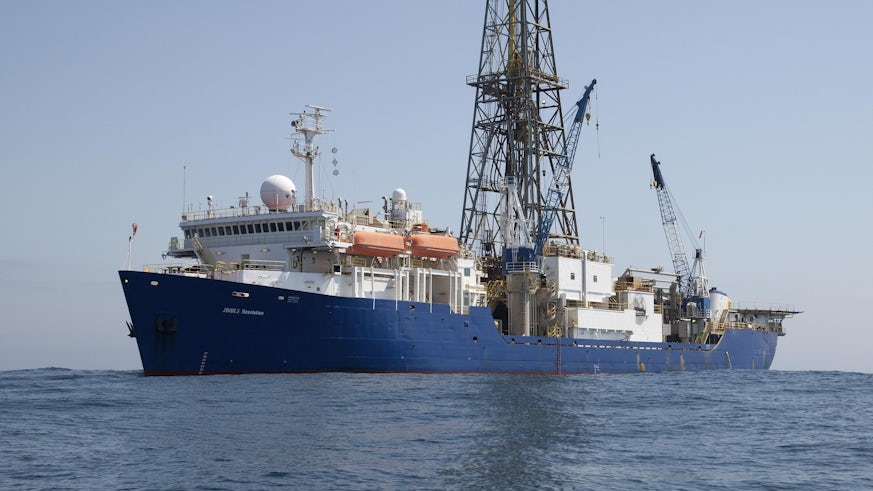Deep sea drilling project to explore history of climate change
29 January 2016

Professor Ian Hall leads expedition to study impact of one of the world’s strongest ocean currents on global climate change
An international team of researchers, led by Professor Ian Hall from Cardiff University’s School of Earth and Environmental Sciences, will today set sail for the Indian Ocean to study one of the Earth’s strongest ocean currents, the Agulhas Current, and its influence on the global climate over the past five million years.
Professor Hall and his team from the International Ocean Discovery Program (IODP) Expedition 361 (which includes Professor Stephen Barker and Dr Margit Simon, also from Cardiff University) will use the JOIDES Resolution ship to drill deep into the ocean floor off the coast of South Africa in search of evidence to explain the driving role of the Agulhas Current in past climate change, and how similar changes may affect the world we live in today.
The sediment cores that they will be collecting will provide a window into the past of the Indian and Atlantic Oceans and allow the team to investigate how warm and salty Agulhas water has leaked between the two.
The Agulhas Current, which is hundreds of kilometers wide and a few thousand meters deep, transports vast amounts of warm, salty water from the Indian Ocean southwards to the tip of South Africa.
Whilst most of the water flow curls around to stay in the Indian Ocean, some of the water leaks into the Atlantic Ocean in massive swirls, known as Agulhas rings. This warm, salty water can make its way into the North Atlantic via the Gulf Stream, where it eventually cools and sinks, transporting more water northward and maintaining the global conveyer belt of ocean currents in a process that is known to influence northwest European and global climate change.
Professor Hall said: “We already have tantalizing evidence from sediment cores that suggests that leakage from the Agulhas Current, causing warm salty water to be exchanged between the Indian and Atlantic Ocean, has been involved in large global climate swings over the past 100,000 years, including the drastic global warming after the last ice age.
“By examining these sediment cores closer, we expect to find evidence of how the Agulhas current has influenced the regional and global climate over much longer timescales, and therefore detail how connections within the climate system work. This has implications for understanding how the future climate system may operate in a warming world”
In what is an intriguing twist to the expedition, the research team will also be exploring the possible role that the Agulhas Current, and climate change, played in the evolution of early modern human culture.
Professor Steve Barker said: “In South Africa, archeological discoveries in caves paint a remarkable picture of some of the earliest evidence of the evolution of modern human culture. These advanced Middle Stone Age cultures show an early flourishing of the human mind between 100,000 and 40,000 years ago.
“Our previous studies of the Agulhas Current have provided background evidence that suggests that some of these large global climate swings, influenced by the Agulhas Current, may have played a key role in the development of these early human cultures.”
Professor Hall and his team will board the JOIDES Resolution in Mauritius in what will be a celebrated event for Cardiff University. Professor Hall will be handed the keys to the ship by Professor Chris Macleod, also from the School of Earth and Environmental Sciences, who has been aboard the ship since December leading his own mission studying the make-up of the ocean crust in the Indian Ocean.
Professor Karen Holford, Pro Vice-Chancellor College of Physical Sciences and Engineering, said: “It is wonderful to see Cardiff University playing such an integral role in fundamental science experiments that are exploring how our planet works. To have two of our researchers lead successive expeditions aboard the JOIDES resolution is a huge achievement for the University, and demonstrates the significant impact of the research produced by the School of Earth and Environmental Sciences. I wish Professor Hall the best of luck on his upcoming expedition, and look forward to welcoming Professor Macleod back to Cardiff after three months of intensive research in the Indian Ocean.”